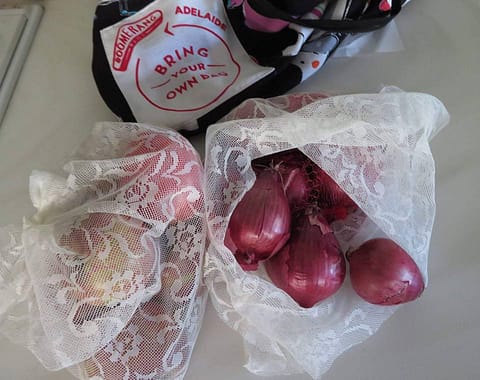I’ve listed below 7 Ways to tackle plastic in the ocean.
“Without significant action, there may be more plastic than fish in the ocean, by weight, by 2050.”
The New Plastics Economy, Rethinking the future of plastics, World Economic Forum, January 2016
Plastic in the environment is doing untold damage. We need to clean up and pretty pronto. You wouldn’t fill your bath with plastic so why fill the ocean with it.
I’ve made a pact with myself to try and avoid plastic (My Plastics Pact). Here’s a list of some of the things I’m doing and YOU could do too.

My Plastics Pact
1. Think before you buy it.
I bought a yellow plastic duck keyring primarily because I thought it would help me find my keys more easily, and it did when I dropped them in long grass whilst walking my dogs. Almost as soon as I bought it the ring, which attached to the keyring to the duck, broke. What I am going to do with it? I am now faced with the problem of how to recycle it.
Moral – Buy good quality or not at all! Make sure you purchase something that can be recycled.
2. Find out more about what can and can’t be recycled
Get to know your recycling symbols. Check any packaging you buy to see whether or the packaging can be recycled. For more information on recycling symbols click this link to Recycle Now.
3. Find out more about what can and can’t be recycled in your area.
Become knowledgeable about what can and can’t be recycled in your area. Keep up with any changes. Unfortunately not all councils can recycle everything. Things that could be recycled are going in general rubbish and vice versa. There are a number of organisations that can help you recycle, including Recycle Now and Terracycle (see below).
4. Influence others
Influence others by setting an example in both the way you purchase new things and with your recycling habits.
A friend of mine tells me that she is influenced by my research.
“Your research has opened my eyes to how satisfying it is to reduce, reuse and recycle. It is better for the planet and saves me money. I really enjoy visiting charity shops and vintage sales – it’s fun and great to bag a bargain or find a hidden gem. I recently paid £40 for a tea cup and saucer which turned out to be worth over £100.”
Gill Saxon
5. Clean up our beaches
If you go to the beach pick up three items of plastic.
“Approximately 5000 items of marine plastic pollution have been found per mile of beach in the UK”.
Why do we need the UK Plastics Pact. WRAP
6. Shop at retailers who are doing more
According to Greenpeace some retailers are doing more than others “All Supermarkets Should Join Iceland in Going Plastic Free,” 17 January 2018 by Greenpeace. They have produced a league table of those retailers that are cutting back on plastic and recently ‘named and shamed’ two supermarkets for not doing enough (Daily Mail)
I recently shopped at a well known supermarket and because I am in the habit of buying certain items – packs of three peppers – I had to stop and think. The peppers were wrapped in plastic that was not recyclable so I chose a single red pepper instead. Most of the vegetables and herbs were in single use plastic packaging.
Rather than search for plastic-free products I have decided it would be easier to choose a supermarket that is making more effort in this direction or to go to the local market or places like the Prospects Trust in Reach.
7. Return the plastic single use packaging to the supermarket
Some people suggest returning the packaging there and then to the supermarket. So once you have paid for it, and your purchases are in your own clean shopping bag, you could remove the single use packaging and hand it back to the cashier or customer services and watch their reaction. I haven’t tried this myself. Although I have recently returned two routers to my internet supplier in their prepaid envelope. That felt good. I was no longer responsible for disposing of these waste electrical items.

Photograph courtesy of Susan Lloyd
If you can buy your vegetables loose do so but take your own bags with you. You can make them yourself out of old net curtains alternatively you can buy them from shops like Lakeland.
What are manufacturers and retailers doing about it?
Some manufacturers and retailers have joined The UK Plastics Pact and are voluntarily moving towards circular rather than linear packaging.
The UK Plastics Pact targets are
1. Eliminate problematic or unnecessary single-use packaging through redesign, innovation and alternative (reuse) delivery model.
2. 100% plastic packaging to be reusable, recyclable or compostable.
3. 70% of plastics packaging effectively recycled or composted.
4. 30% average recycled content across all plastic packaging.
The UK Plastics Pact, WRAP
In answer to the question “why do we need The UK Plastics Pact?” they point out
“There is inconsistent household recycling provision – 1 in 4 UK local authorities does not collect pots, tubs and trays.
Plastics are entering the natural environment – approximately 5000 items of marine plastic pollution have been found per mile of beach in the UK.
We are very reliant on export markets for recycling – currently 67%.
Current packaging legislation does not drive a system where plastics never become waste.”
Why do we need The UK Plastics Pact? WRAP
Who has signed up to the UK Plastics Pact
The Plastic Pact is a great idea. Its members are to be commended.
See who has signed up here. But what about the names – big and small – that you can’t see on the list?
More about WRAP
WRAP (Waste Resources Action Programme) is a registered charity that works with governments, businesses and communities. It’s aim is to speed up the move towards a sustainable, resource efficient economy.
They are looking at how we design, produce and sell products, how we use and consume products, and how products can be reused and recycled.
More about Recycle Now
“Recycle Now is a national recycling campaign for England, supported and funded by the Government and managed by WRAP.
You will find a list of what you can do with various items on their website. I wanted to find out what to do with cassette tapes. Cassettes were not in their index but I found the answer when I looked under video tapes. They can’t be recycled. CDs can’t be recycled either. The best thing to do is to give CDs to a charity who will sell them to make money for their cause or sell them yourself.
More about Terracycle
Terracycle describe themselves as an innovative recycling company that has become a global leader in recycling hard-to-recycle waste.
They offer free recycling programmes funded by brands, manufacturers and retailers with the aim of collecting and recycling the more difficult items.
I recently threw out some old daily contact lenses as I thought it wasn’t possible to recycle them. Then I discovered that Acuvue run a recycling scheme and that there is a collection point in Newmarket, which is near where I live. There is also a collection point in Newmarket for old marker pens.
For those aspiring to zero waste you can purchase a box for a specific type of waste – waste which is not currently sponsored by a brand. For more detailed information about the free recycling versus the zero waste boxes click here.
RECOUP
RECOUP is also a registered charity. Recoup or Recycling of Used Plastics Limited aims to increase the levels of plastic recycling within the UK
England, Ireland, Scotland and Wales have set packaging targets for themselves. For the table click here. The targets for Ireland, Scotland and Wales are clearly stated in this table whereas for targets for England the reader is directed to other documents.
Stem the flow of plastic
There’s plenty you and I can do to stem the flow of plastic. The key is not to buy it in the first place. It is actually less effort to decide against purchasing something in the first place than to make the decision to discard it later and then find out how to recycle it.
Have you come across any difficult to recycle items? How did you recycle them? Did they end up in landfill or are they still in your garage or your shed?

Nice article with realistic ideas. I would also suggest re-thinking the things we do on a daily basis that cut down on the need to buy things that come in disposable packaging of all types. Making your own bread, for example, cuts back on plastic bread bags in your home. When you must buy, look for items in easily recyclable packaging.
Thank you for commenting. Making your own bread would certainly eliminate the plastic bag it comes in. I think some of the supermarkets will recycle the plastic bags bread comes in with plastic carrier bags.
I make my own soup, which cuts out the tub it comes in when you buy it in the supermarket. Homemade soup also goes further than soup from the supermarket.
I agree it is better to choose recyclable plastic if plastic is unavoidable.
Best wishes
Amanda